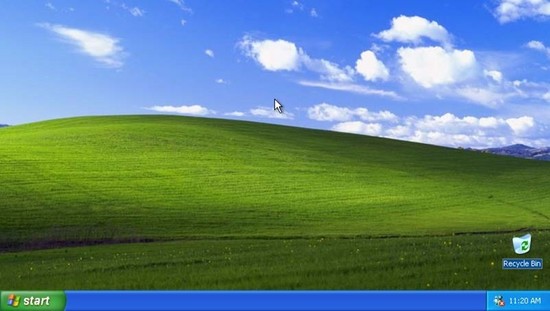The Great Analytics Migration
Analysts are starting to look for new opportunities
Private Analytics Conversation 1.3 – the Great Analytics Migration

The last Analytics Cohorts meeting was a good deal more personal than the others and, as such, there wasn’t much that was publishable. But what was publishable comes with its own playlist.
We discussed specific issues each member was having at work and offered a range of advice form a variety of perspectives.
We don’t have enough resources
Our business stakeholders just aren’t data literate
My group is being reorganized in an odd way
My 8th interview at the same company – is that normal?
It was a great meeting! But the only real publishable thing to come out of it was the inkling of an impending Great Analytics Migration.
But first:
What is this Exclusive Group?
Analytics Cohorts is a small, private conversation between consenting digital analysts. It’s a safe space for talking about people, process, and sometimes technology. Careers, corporate relationships, fears, aspirations… it’s a free-range exchange.

Has the Great Analytics Migration Begun?
I sense a pattern. In speaking to several analysts lately – and non-analysts come to think of it – we seem to have reached a point of working from home where it’s a routine. It’s working. It’s new, it’s odd, but it’s working.
We’ve been at it long enough to have worked out what was not working and fixing it. We sort of have a handle on this home schooling thing. We know when the dog needs to go out, when the mail is delivered, and to not eat that flavor of yoghurt in the fridge.
But then we start tripping over things that are not working that are not related to working from home. They are systemic.
I can’t get this done because the company doesn’t have the tech I need
I can’t get this done because the people I rely on are still not performing
I can’t get this done because the people I’m doing it for still aren’t clear about what they want
I can’t see a path forward here
And I feel myself a cog in somethin’ turning

“Here” is the operative word. “Here” used to mean “in this location”.
Guess what? Location, location, location is a relic. If you’re working remote, you can work for a company in Cucamonga with the same commute. You can take a job in Roanoke, Reykjavik, or Rome … and still work from home.

So, people are looking up from their keyboards and seeing greener pastures – right on their screens.
One long-time friend and digital analyst from the start of the industry told me they looked up and saw that the people they respected most at their company were leaving one-by-one. On the one hand, they asked, do I want to stay here and keep the whole ship running? On the other hand, what do they know that I don’t?

Is It Your Time?
One of our members offered up an insightful write-up about how to decide whether it’s time to make a change.
Should you stay or should you go? Here is an excerpt:

To those of us who are deep into KPIs, enjoy reminiscing about Webtrends-v7, for whom R is not a letter nor python a snake, digital analytics is tremendously fun, challenging and rewarding.
Part of the “soft skills” of analytics is navigating the organisational barriers and resistance to data and advocating for and educating the org on digital data’s value and requirements. Math fear is real and implementation of digital is obtuse to our clients.
One of the toughest decisions we make is when to leave our teams and our data. In over 20 some years of working in data I have developed a framework based on “The Gambler” to consider when to start looking on LinkedIn.
Know When to Hold ‘Em
Everyone is going to have a terrible day, project or even quarter at some point. These bad days, a company reorg, loss of a much-loved colleague or boss, a confusing relationship with a client, can all be reasons to feel like quitting.
Breath in breath out. What these examples share is that we are being pushed out of our comfort zone, and this is more about us than our situation.
Here we must really own our analytical skills
Ask:
- What has changed? Really what is the new landscape? Can we understand the logic for the re-org, can we see a path forward?
- Can I contribute in a new way? Can I step up into the departing team mates role, albeit temporarily? Would I want to? How would I do the tasks differently?
- Is there an opportunity to build new skills or exercise skills that had previously not been valued or required?
Identify and tackle root causes. Suggest new ways of working, acknowledge that the relationship seems unsatisfactory to you both.
It is not going to get better unless we act thoughtfully and with a clear objective. Act humbly, listen to objections and recognize the onus is on us, those seeking change, to do the heavy lifting in creating solutions, at least at first.
This means have a plan, a solution, and a pitch.
If nothing else this thoughtful diagnosing of the problem develops a skill set that will be an asset in the future.

Know When to Fold ‘Em
Unless you are very senior, most cultural change is opportunistic. Being in the right place at the right time to solve a problem or advocate for a better way of working again means being prepared.
When improving digital data adoption certain opportunities to advance will arrive. Being prepared to advocate for our solution raises our profile and enhances digital for the business. If we’ve been working on our plans to improve from the “hold em” phase these opportunistic moments will feel organic and hopeful.
However, there are times I needed to pause an initiative either to regroup my energy or because I wasn’t getting traction.
Every so often I have been told to “stand down” on something. One executive told me with a wry smile “you run with scissors” when I was pushing for a change. I slowed down on that initiative but did not give up. Over time the necessary changes happened in a more collaborative manner.
Just fold your cards – for now. Go back to the “day job” and live to fight another day.
Know When to Walk Away
Working through the Hold ‘em and Fold ‘em approaches, we may reach a conclusion our own professional goals or interests no longer a fit the role we hold.
Often the role we are in does not require the skills we wish to develop or deploy, be that leadership, strategic thinking, data visualisation, coding, data science etc. This simply means the job does not fit us anymore.
Ask yourself, “Would I apply for my job today?” “What about my role do I like and dislike?” Focusing on the current role, creates a narrative about the successes to date which is useful for interviewing.
Create opportunities to explore the skills we want to use either in the current organisation or via voluntary or other avenues. Talk to people doing the role we are interested in and understand what roles are out there for the next move. Taking your time here will pay off.

The walking away phase should feel like work yet empowering and exciting work and helps funnel the pent-up potential from our current role into new opportunity. Changing employer or taking on a new role is not an easy decision, the familiar and potential of where we are gives one pause when that final offer is in hand.
Working through these phases can add clarity to evaluating the next move.
Know When to Run
It goes without saying if you witness or are subjected to anything that affects your health, mental or otherwise, is unethical, immortal or dangerous hop on LinkedIn and get the hell out of Dodge.

If this sounds dramatic it is. Running should feel unusual if you are running out of your current role. I suggest a rethink and hold ‘em, fold ‘em or quietly walk away instead.

The Other Side of the Great Analytics Migration
If you’re a manager, you have a tough problem to deal with. Your job is to keep people engaged.
How do you keep your best and brightest from leaving?
Oh no, that’s not a rhetorical question as a literary device; it’s a real-live question. I am soliciting responses and will award prizes to the best suggestions. Please email me here.
Answers will show up in the next Private Analytics Conversation.

What is Analytics Cohorts?
Analytics Cohorts is a small, private conversation between consenting digital analysts. It’s a safe space for talking about people, process, and sometimes technology. Careers, corporate relationships, fears, aspirations… it’s a free-range exchange.
Apply today.

Migration photo by Harshil Gudka on Unsplash
Unhappy photo by Anthony Tran on Unsplash
Windows photo by Microsoft
Sinking Ship photo by Jason Blackeye on Unsplash
Poker photo by Marin Tulard on Unsplash
Walk Away photo by Filip Mroz on Unsplash
Others by Jim Sterne
